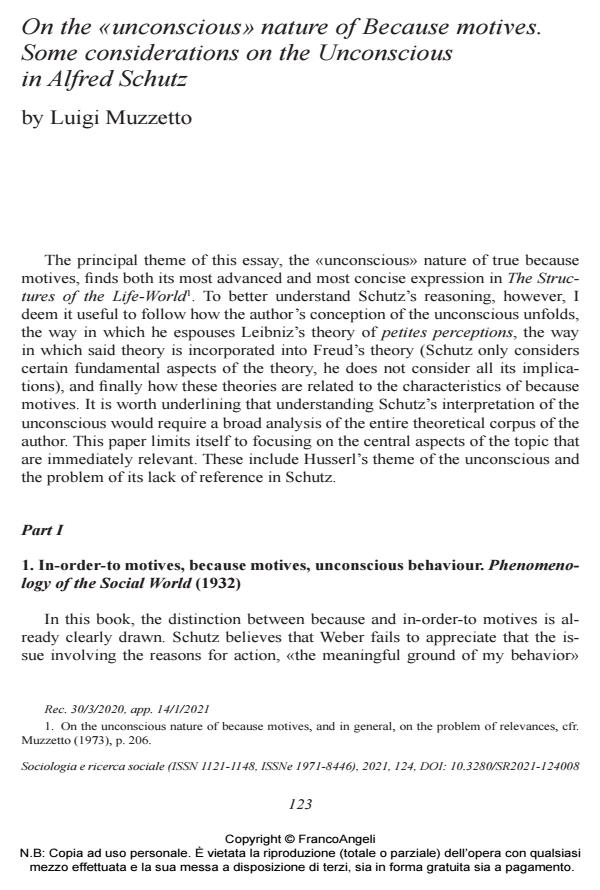On the «unconscious» nature of Because motives. Some considerations on the Unconscious in Alfred Schutz
Journal title SOCIOLOGIA E RICERCA SOCIALE
Author/s Luigi Muzzetto
Publishing Year 2021 Issue 2021/124
Language English Pages 21 P. 123-143 File size 211 KB
DOI 10.3280/SR2021-124008
DOI is like a bar code for intellectual property: to have more infomation
click here
Below, you can see the article first page
If you want to buy this article in PDF format, you can do it, following the instructions to buy download credits

FrancoAngeli is member of Publishers International Linking Association, Inc (PILA), a not-for-profit association which run the CrossRef service enabling links to and from online scholarly content.
This paper is divided into two parts. The first traces the conceptual development of because motives, while simultaneously endeavouring to grasp the notion of the unconscious revealed in Schutz’s analysis. The author refers to Leibniz’s theory of petites perceptions and Freud’s theory of the unconscious; theories whose respective characteristics are somehow compared, integrated and thus juxtaposed with the characteristics of because motives. The second part of the paper raises the question why Schutz, in his analysis of motives and unconscious behaviour, does not refer to Husserl’s conception of the unconscious
Luigi Muzzetto, On the «unconscious» nature of Because motives. Some considerations on the Unconscious in Alfred Schutz in "SOCIOLOGIA E RICERCA SOCIALE " 124/2021, pp 123-143, DOI: 10.3280/SR2021-124008